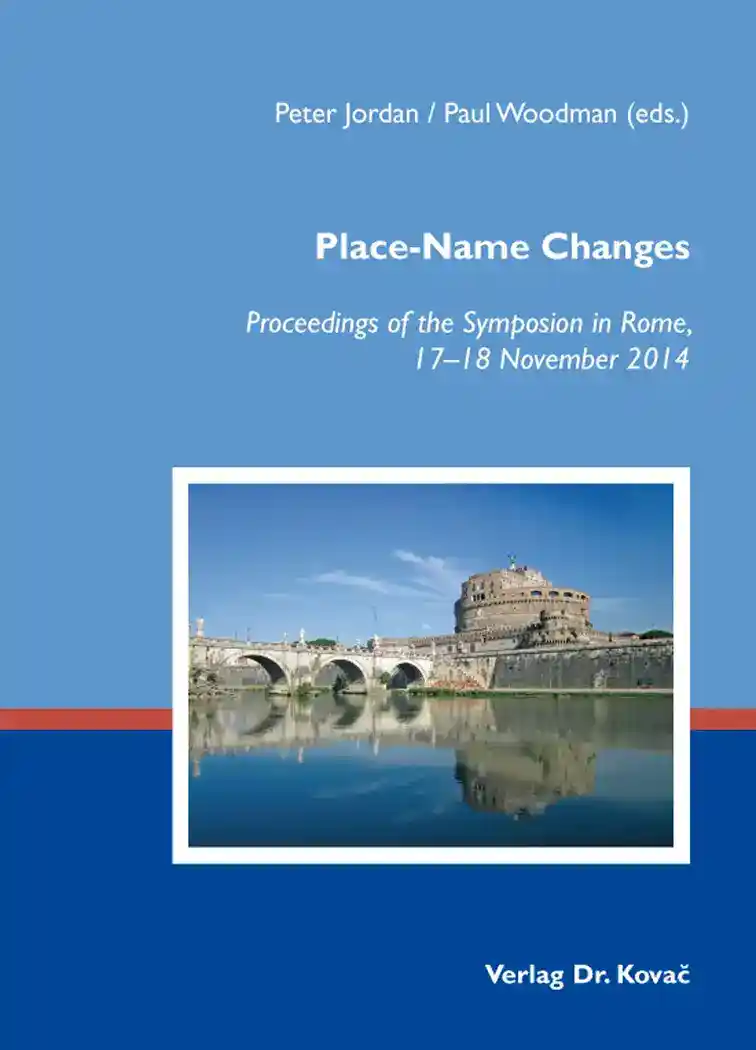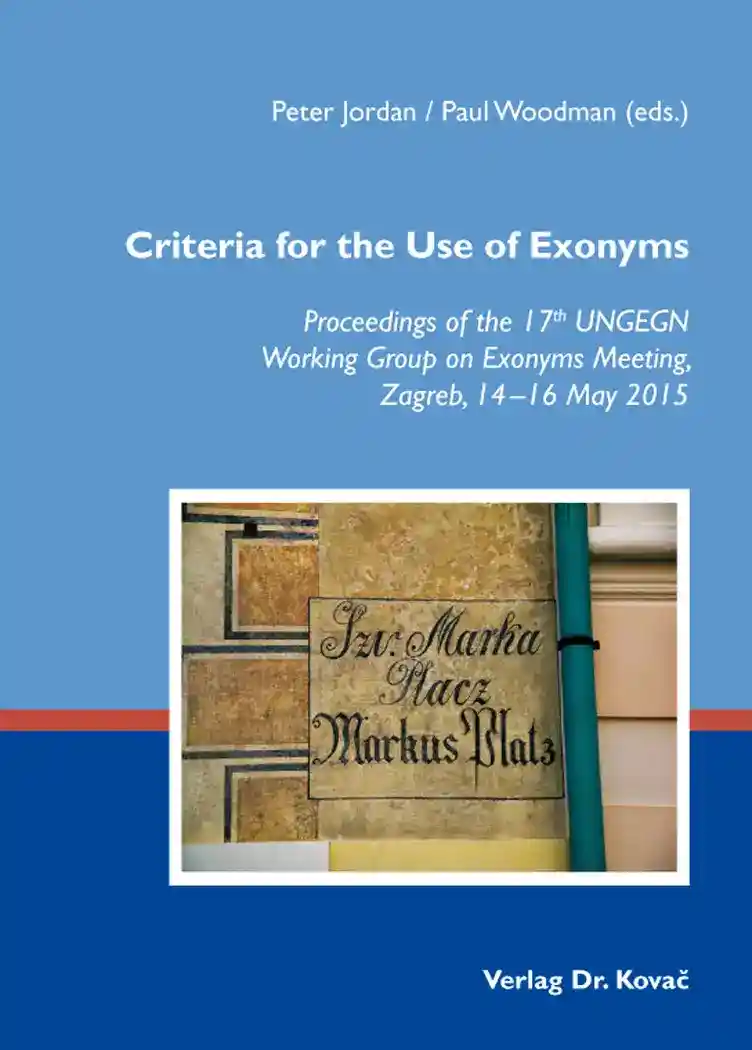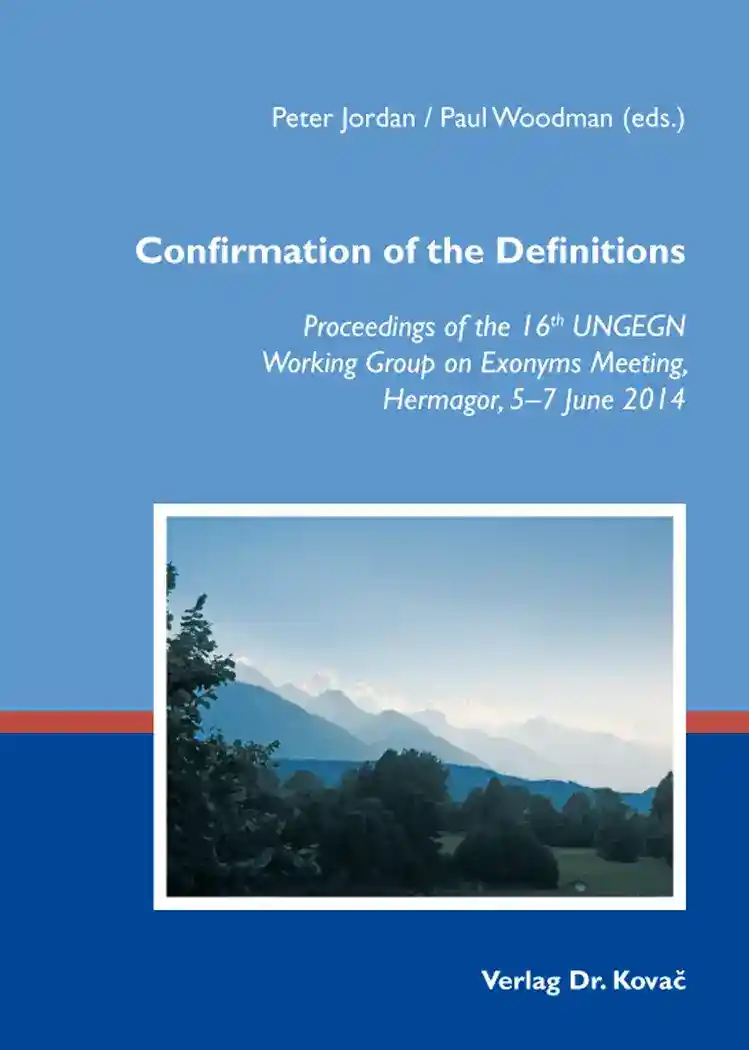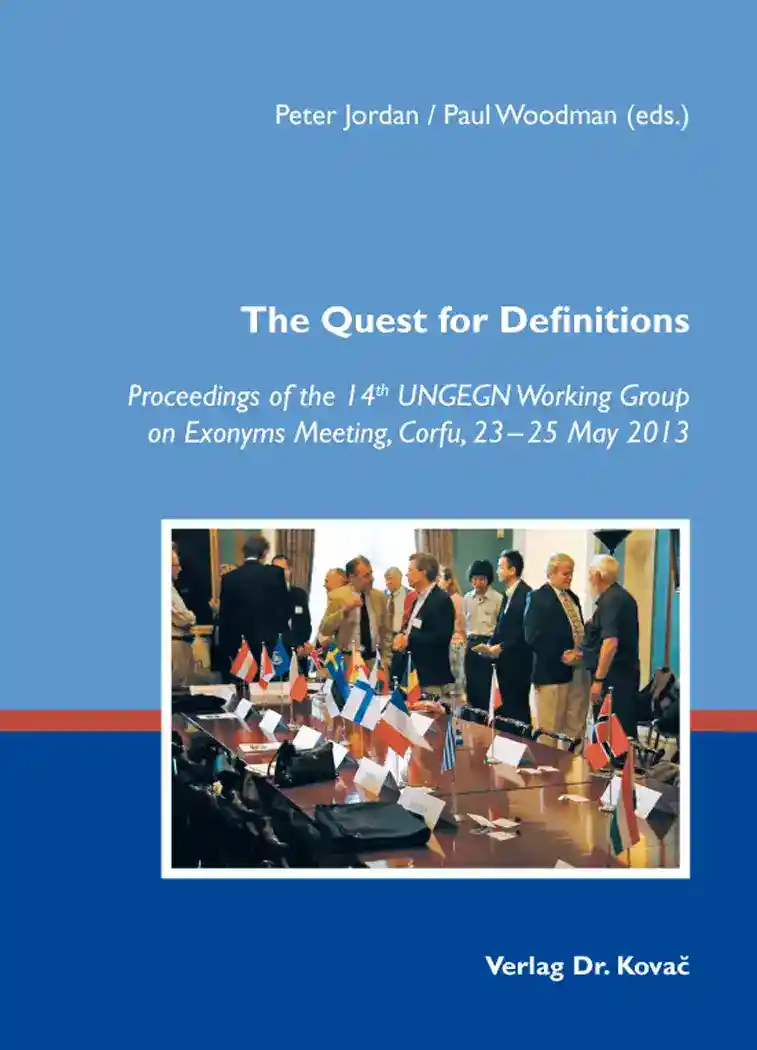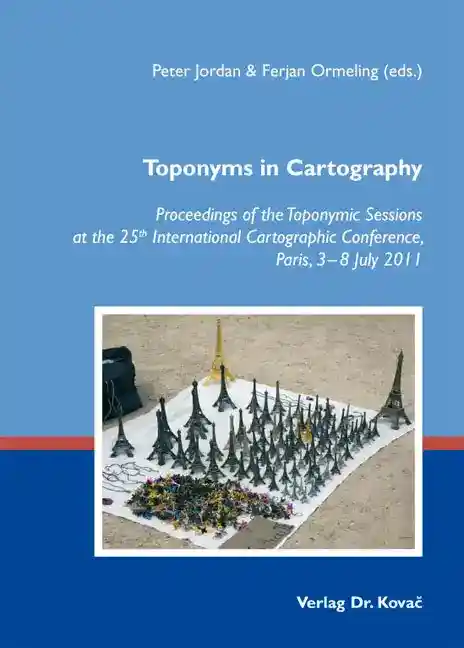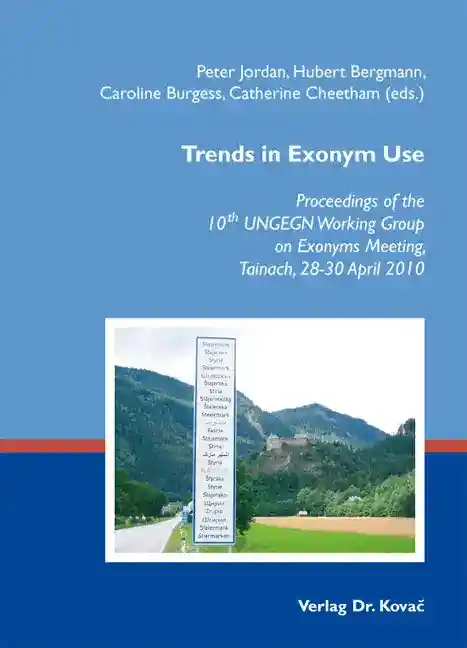Peter Jordan / Paul Woodman (eds.)Place-Name Changes
Proceedings of the Symposion in Rome, 17–18 November 2014
– in englischer Sprache –
Name & Place – Contributions to Toponymic Literature and Research, Band 5
Hamburg 2016, 500 Seiten
ISBN 978-3-8300-8423-5 (Print)
ISBN 978-3-339-08423-1 (eBook)
Rezensionen
[…] Insgesamt macht der Tagungsband eindrucksvoll deutlich, dass Namen durchaus nicht außerhalb der Gesellschaft und politischer Wandlungen beziehungsweise Einflussnahmen stehen, sondern vielmehr gewachsene Strukturen beziehungsweise politische Macht spiegeln und auch als ihr Instrument genutzt werden. Die Ausdehnung des behandelten Raumes zeigt gleichzeitig, dass es sich um ein globales Phänomen handelt. Schon aus diesem Grund ist der Band lesenswert. Sicher wird nicht jeder Beitrag jeden Leser gleichermaßen interessieren, doch ist gewissermaßen für jeden, der sich mit dem Thema Namenwechsel befasst, etwas „dabei“.
[…] Peter JORDAN and Paul WOODMAN have succeeded in publishing an important and balanced book, which will serve well to anyone interested in place-name changes, both in theory as well as, and perhaps more importantly, in the multiplicity of their everyday occurrences in different parts of the world.
Zum Inhalt
Languages are promoted by political powers and are dependent on them. In a historical dimension languages come and go depending on political support. Place names as elements of language are part of this historical fluctuation. Due to their symbolic role as markers of geographical features, territories and space-related identities, however, they are even more exposed to political change.
At any time the replacement of the dominant political or cultural force within a given society can result in place-name changes. A recent example is the rise and fall of Communism in Eastern Europe. But the commercialisation of our societies also has its impact on toponymy. New commercial names replace traditional ones, prompting the question whether place names should perhaps be regarded as a part of the cultural heritage and be protected for this very reason.
Upheavals of the namescape are certainly caused by a change of dominant political forces. But the emergence of new official names, e.g., due to standardization and public recognition of place names of indigenous and non-dominant groups, can also result from new cultural directions and attitudes in a given and otherwise stable society, when for example strong efforts are made to codify the languages of indigenous peoples and to display their place names subsequently in public space. Place-name changes often affect the names of streets and of urban spaces in general, since many of them have a commemorative function and are thus closely related to certain historical periods and powers. But names of populated places and especially cities are also frequently subject to name changes due to the prominence of these features and their importance in politics, culture and the economy.
It is also interesting to see how place-name changes are received and accepted by the users, i.e. the local community and the outside world. It frequently occurs that the old and the new name remain in use simultaneously for some time – the use differing by age groups, political directions, or between insiders’ and people from the outside.
Thus, the topic of this book is highly space-related and geographical, but also has very significant historical, sociological and political dimensions.
Schlagworte
GeographieGeographische NamenGeschichteKartenLinguistikNamensänderungenPolitische UmbrücheRaumbezogene IdentitätSiedlungsnamenSprachenStraßennamenToponomastikToponymeIhr Werk im Verlag Dr. Kovač
Weitere Bücher der Herausgeber
Proceedings of the 19th UNGEGN Working Group on Exonyms Meeting, Prague [Praha], 6-8 April 2017
Hamburg 2018, ISBN 978-3-8300-9997-0 (Print) | ISBN 978-3-339-09997-6 (eBook)
Criteria for the Use of Exonyms
Proceedings of the 17th UNGEGN Working Group on Exonyms Meeting, Zagreb, 14–16 May 2015
Hamburg 2016, ISBN 978-3-8300-8946-9 (Print) | ISBN 978-3-339-08946-5 (eBook)
[…] Gerade Namenkundler, die sich nicht eingehender mit dem Bereich Exonym/Endonym auseinandergesetzt haben, sollten diesen Sammelband zur Kenntnis nehmen, da…
Confirmation of the Definitions
Proceedings of the 16th UNGEGN Working Group on Exonyms Meeting, Hermagor, 5–7 June 2014
Hamburg 2015, ISBN 978-3-8300-8422-8 (Print) | ISBN 978-3-339-08422-4 (eBook)
Proceedings of the 14th UNGEGN Working Group on Exonyms Meeting, Corfu, 23–25 May 2013
Hamburg 2014, ISBN 978-3-8300-7747-3 (Print) | ISBN 978-3-339-07747-9 (eBook)
Proceedings of the Toponymic Sessions at the 25th International Cartographic Conference, Paris, 3–8 July 2011
Hamburg 2013, ISBN 978-3-8300-6700-9 (Print) | ISBN 978-3-339-06700-5 (eBook)
[…] “Toponyms in Cartography” contains detailed, carefully edited articles that will be of interest to all with a professional or general…
Proceedings of the 10th UNGEGN Working Group on Exonyms Meeting, Tainach, 28-30 April 2010
Hamburg 2011, ISBN 978-3-8300-5656-0 (Print) | ISBN 978-3-339-05656-6 (eBook)
